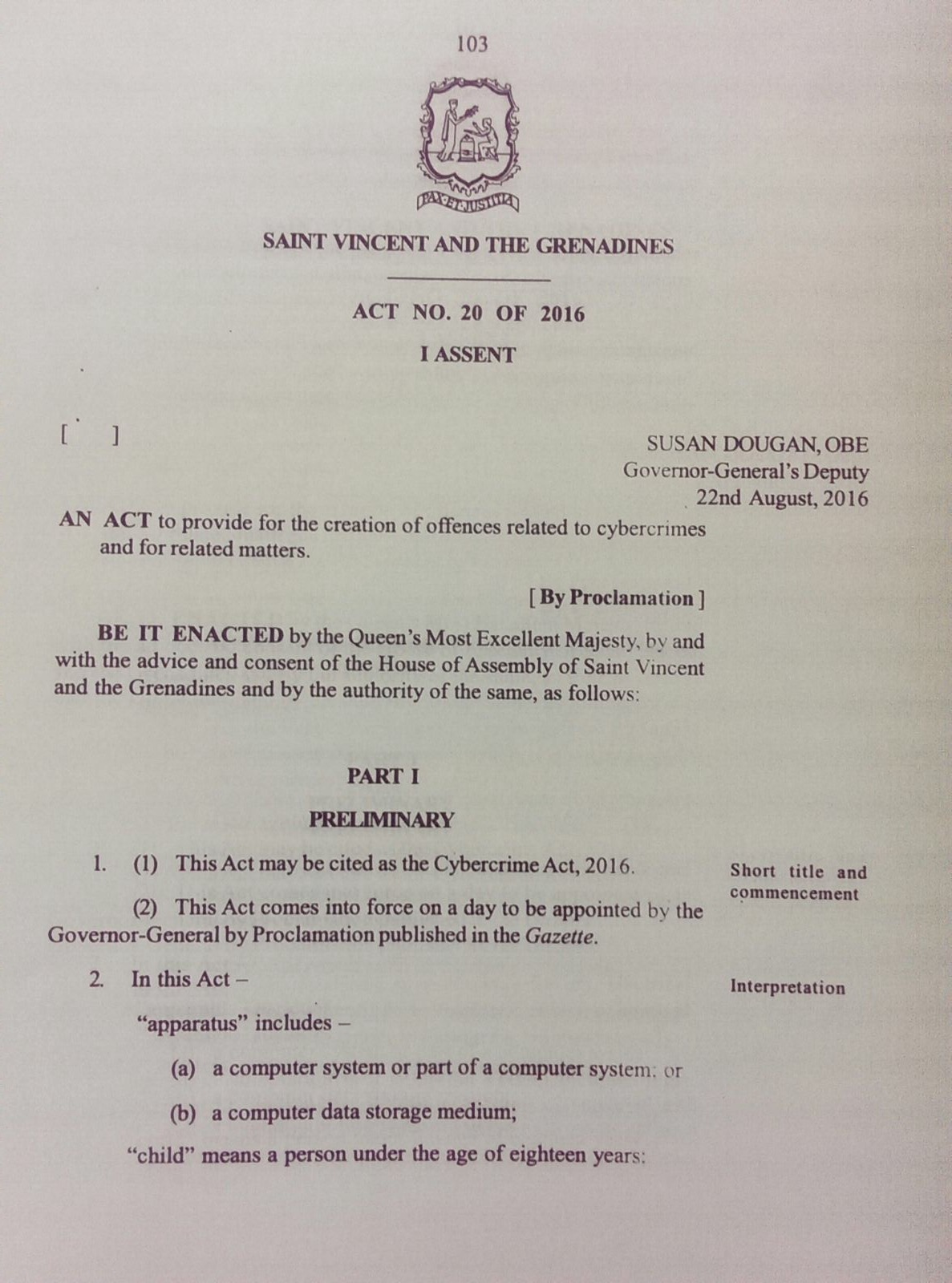 UPDATE (Sept. 10, 2016): While the Cybercrime Act 2016 has been assented to and gazetted, it is not yet in effect, as it is yet to be proclaimed, in keeping with one of its provisions. See original story below.
UPDATE (Sept. 10, 2016): While the Cybercrime Act 2016 has been assented to and gazetted, it is not yet in effect, as it is yet to be proclaimed, in keeping with one of its provisions. See original story below.
The Cybercrime Act that was passed in Parliament on Aug. 12 amidst local, regional and international protest that it infringes on freedom of expression, has come into effect, even as the Freedom of Information Act is yet to come into effect more than a decade after being passed.
The Cybercrime Act that was passed in Parliament on Aug. 12 amidst local, regional and international protest that it infringes on freedom of expression, has come into effect, even as the Freedom of Information Act is yet to come into effect more than a decade after being passed.
Governor General’s Deputy, Susan Dougan, assented to the act on Aug. 22 and it has been printed in the Gazette.
This means that prosecutors can now bring charges against persons under the Act, which creates offences relating to activities in cyberspace such as child pornography, spamming, and cyber bullying.
But the law also broadens the nation’s criminal liberal provisions, which freedom of expression advocates oppose.
Under the law, persons can be fined hundreds of thousands of dollars or jailed for decades if convicted of certain offences.
The main opposition New Democratic Party (NDP) broke its boycott of Parliament to debate the bill, which was debated after some revision at the select committee stage.
The NDP did not participate in the select committee and only minor typographical changes were made to the bill before it was passed in Parliament after two days of debate.
Former NDP senator, Anesia Baptiste, who is leader of the Democratic Republican Party, was invited to the sit on the select committee. She, however, portrayed its meetings as a clique of members of Prime Minister Ralph Gonsalves’ family and his Unity Labour Party.
After the passage of the bill into law, the NDP issued a statement saying that if assented to, the Cybercrime Act 2016, would take St. Vincent and the Grenadines “several steps backward”.
After the passage of the law, more than 20 regional and international freedom of expression advocacy groups signed a joint statement expressing alarm.
The groups, including Reporters Without Borders, the Association of Caribbean Media Workers (ACM), Committee to Protect Journalists (CPJ), and the International Press Institute (IPI) said:
“In addition to broadening criminal defamation to include online expression, the law also introduces worryingly vague and subjective definitions of cyber-harassment and cyber-bullying, both of which are punishable by imprisonment,” the statement said.
“The negative value and chilling effect that criminal defamation places on freedom of expression and of the press have been well noted at the local, regional and international level, and states have been repeatedly called on to abolish criminal defamation laws. The issue of criminal defamation has particular importance in the Caribbean, where a similar law was adopted in Grenada in 2013 and subsequently amended after international outcry. Trinidad and Tobago and Guyana are currently considering similar legislation now under critical review by national, regional, and international stakeholders,” the statement said.
But in wrapping up the debate, Gonsalves defended the law saying that is was not intended to protect him or his ULP administration from criticism.
“Mr. Speaker, this is, as I’ve said before, a necessary and desirable piece of legislation. It is not unconstitutional. It passes constitutional muster, and it is good for the society,” Gonsalves said.






As they say, only time will tell what this new law will bring. Unfortunately, given that most of the electorate can barely read, let alone access the Internet, there will be little public concern if Facebook and other posters at home and abroad are charged under the act. It will then be up to the courts to decide whether their rants rise to the level of fomenting revolution or threatening people’s lives.
As for the latter, I remind everyone that threats like, “I’m going to kill your cunt” or “I’m going to chop you up” or “I’m going to take off your face” are shouted every day all across the land. Unlike decades ago, complaints to the police are treated with a yawn or a shrug.
So why should Internet threats be treated any different?